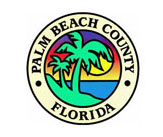The Palm Beach County Commission gave preliminary approval Tuesday to an ordinance that would prohibit the sale of vehicles on public rights of way.
Code Enforcement Director Ramsay Bulkeley said the ordinance complies with a state statute that prevents individuals from selling vehicles illegally on public right of ways and intersections, often called “curbstoning.”
PBSO Sgt. Matthew Castelli said curbstoning deals with the practice of buying or selling vehicles without a license.
“These vehicles are typically parked in high-traffic locations such as utility easements and vacant lots, which border our roadways, gas stations, convenience stores and supermarket public parking lots,” Castelli said.
Former Gov. Charlie Crist signed a bill to address the issue, which allows any law enforcement or code enforcement official to immediately tow violators and assess a fine of $500 for each vehicle.
“The owner must show ownership, pay the fine to obtain a release form to be presented to the towing company, and pay the tow company storage fees before they can have their vehicle back,” Castelli said.
The statute allows local governments to adopt a local ordinance to allow the towing of vehicles parked in violation of the statute.
“We would appreciate your help by approving this ordinance to effectively deal with this growing problem,” he said.
Commissioner Priscilla Taylor asked how the ordinance works. “I’m assuming this is just for county areas, or is it for the entire county?” Taylor questioned.
Bulkeley said the ordinance applies to all public rights of way, but some municipalities have enacted their own ordinances.
“The City of Boynton Beach has one in place, and the League of Cities supports this, and it looks as if they are headed in that direction as well,” he said.
Assistant County Attorney Shannon Fox said the ordinance will apply in unincorporated Palm Beach County, and municipalities can opt in if they choose to.
Commissioner Melissa McKinlay asked whether there were plans to notify owners before actually enforcing the ordinance.
“Are we doing any sort of warning, placing an information notice on their car first and then coming back a few days later, just to give people a chance to learn the new requirements?” she asked.
Bulkeley said notices would be given initially, and his department will send out a press release on the topic. “The intent for the first six weeks is to go to the problem areas and start tagging them with these warnings,” he said. “I think once we start tagging them, they will get the idea quite quickly.”
Taylor made a motion to approve the ordinance, which carried 6-0 with Commissioner Hal Valeche absent.








